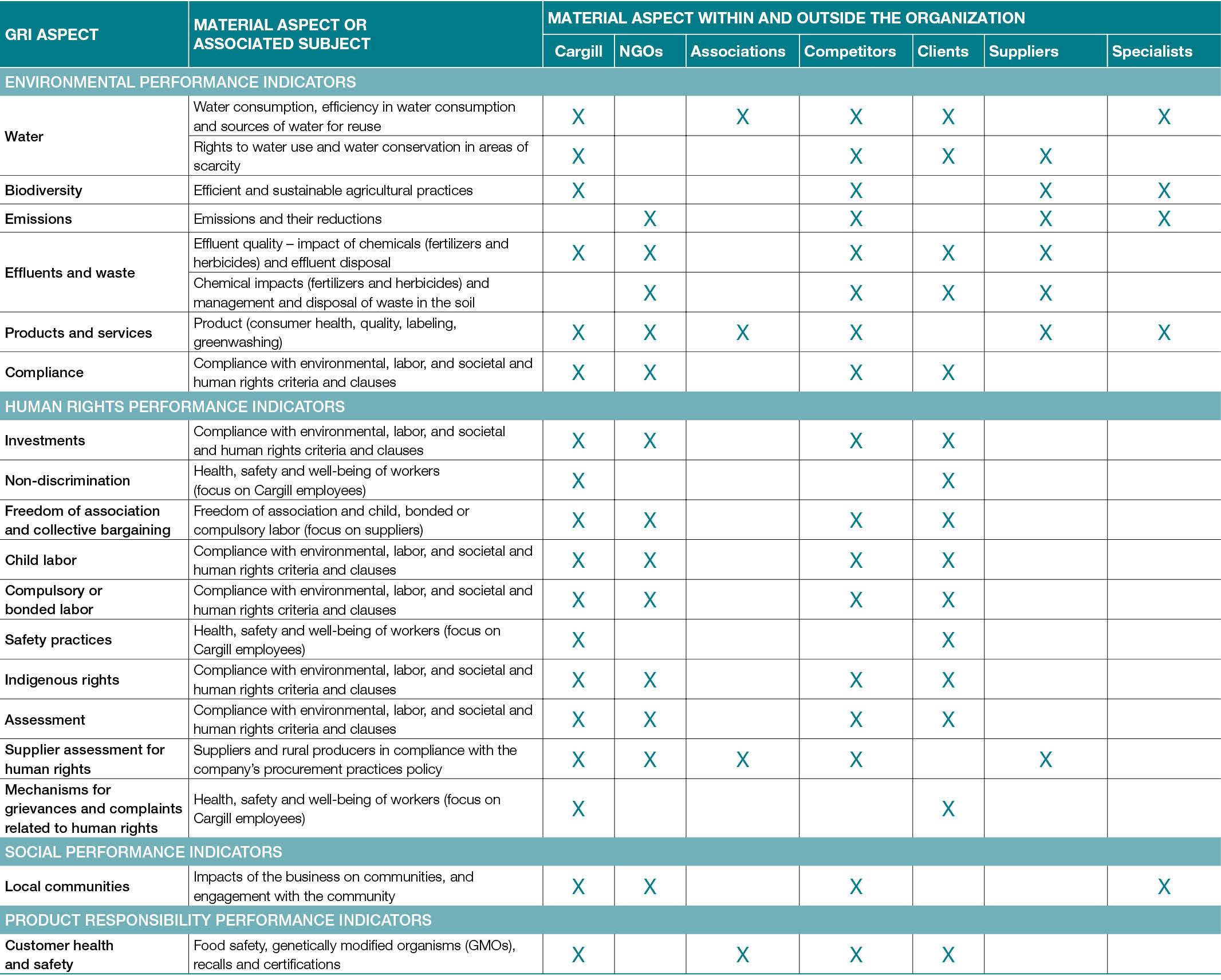About the Report
The Cargill 2016 Report brings together the outstanding initiatives, challenges, and performance of Cargill Alimentos Ltda. and its main subsidiaries, including Cargill Agrícola S.A. and Banco Cargill, in the period. This year, we also included information regarding Cargill Animal Nutrition, responsible for the company’s animal nutrition business. The Report was prepared according to the methodology of the Global Reporting Initiative (GRI) – Essential level, benchmark in global and multisector practices for reporting economic, social, and environmental information. (G4-7, G4-17, G4-28, G4-32)
This document, published annually in Portuguese and English in print, PDF for download, and hotsite, seeks to reflect the transformation and evolution process that Cargill is going through. In addition to reporting concisely and objectively, we seek to balance the positive aspects and the points for improvement of the economic, social, and environmental aspects addressed.
(G4-29, G4-30)

Materiality
When developing this document, we welcomed the opinion of our stakeholders, such as NGOs, associations, competitors, clients, suppliers, employees, the government, and specialists. These stakeholders were selected according to three criteria: broad knowledge of Cargill’s business, extensive industry knowledge, and relationship with the organization. In a consultation carried out in 2015, through telephone interviews, they pointed out the aspects that they consider most important for the company’s sustainability. This process gave rise to a materiality matrix, which consolidated the different points of view, and from which the material aspects for our business were extracted.(G4-18, G4-19, G4-24, G4-25, G4-26)
Materiality (G4-18, G4-19)
Product: consumer health, quality, labeling, greenwashing
Effluent quality: impact of chemicals (fertilizers and herbicides) and effluent disposal
Water consumption, and efficient water reuse consumption and sources of water for reuse
Suppliers and rural producers in compliance with the company’s procurement practices policy
Compliance with environmental and labor criteria and clauses, and those regarding society and human rights
Rights to water use and water conservation in areas of scarcity
Chemical impacts (fertilizers and herbicides), and management and disposal of waste in the soil
Emissions and their reductions
Food safety, genetically modified organisms (GMOs), recalls, certifications
Efficient and sustainable farming practices
Impacts of business on communities, and engagement with the community

Material aspects and GRI aspects
(G4-20, G4-21, G4-27)

Questions, suggestions, or more information (G4-31, G4-33)
Contact us by email [email protected].
